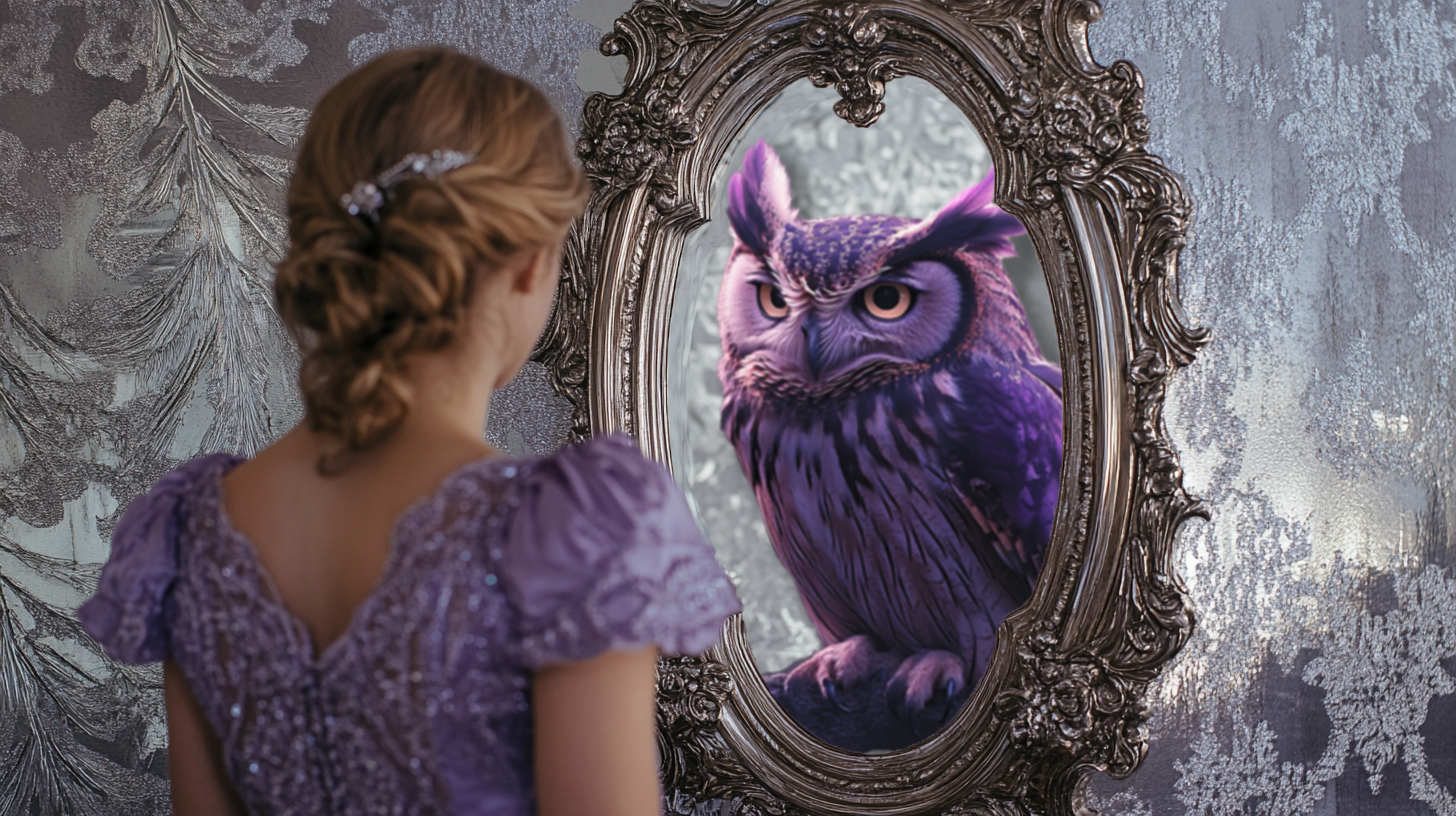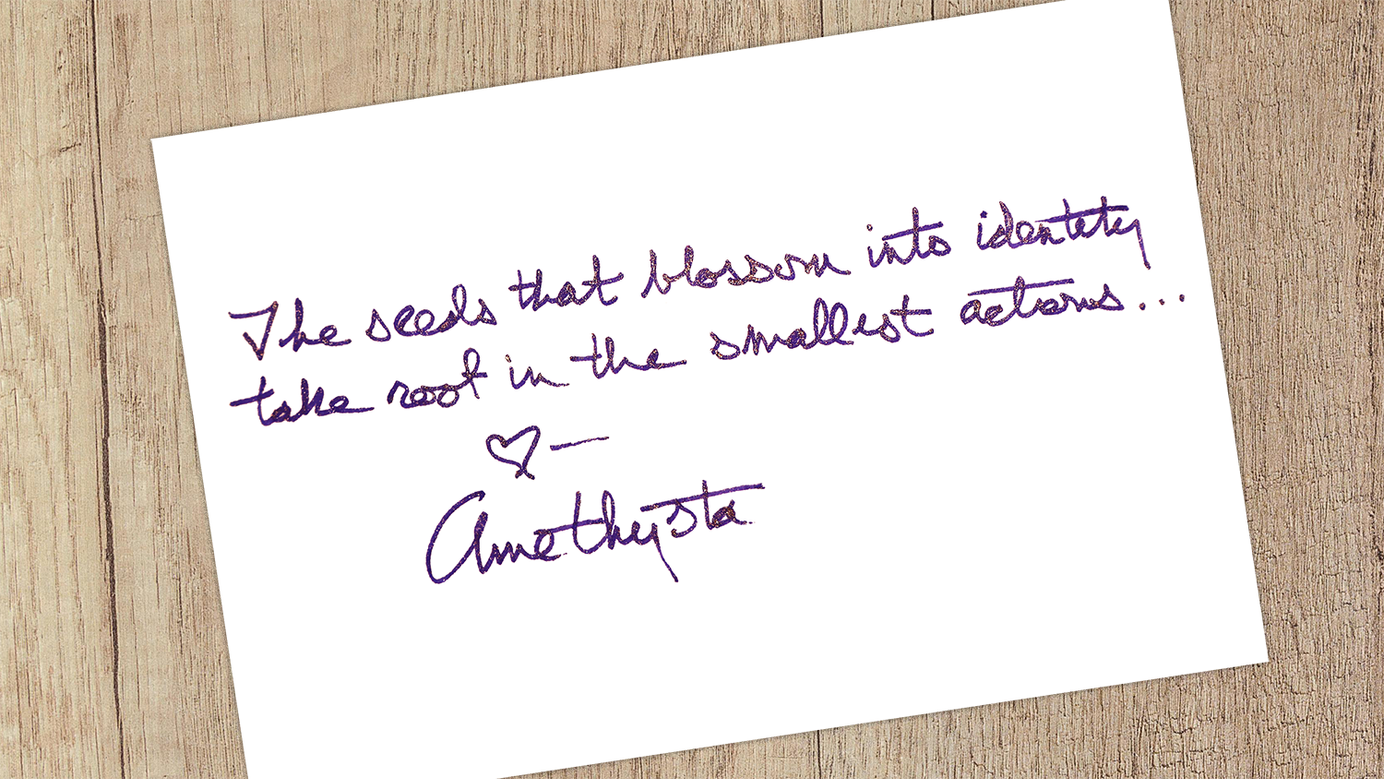From Flower Maiden to Owl Face: A Transgender Allegory
The lesson Welsh myth teaches about identity

The Collective Unconscious is Carl Jung's best-known contribution to psychology. Symbols particular to human understanding of the Universe are stored there, waiting to be tapped by artists across human history. Jung believed all human stories borrow these symbols and reshape them to suit contemporary cultural norms.
A student of Jung's - Joseph Campbell - found empirical evidence of common symbols written in mythology. Cultures that almost certainly could not have communicated told myths using similar symbols, describing similar events, and teaching similar lessons.
Humans may possess instant, mystical "network access" to a common database of symbols. But just as likely is humanity's common experience of the process of identity that gives rise to obvious storytelling devices to describe it.
Either way, myth opens the human experience across our history: defining, explaining, and teaching. Through myth, we experience our lives as every woman, every man, every goddess, every god.
The ancient Welsh myths contained in Y Mabinogi include a character named Blodeuwedd. Her story is simple, especially when told with the gloss of Christian patriarchal beliefs, through which the story is believed to have been written down.
But viewing the story as Jhenah Telundru does, from Blodeuwedd's perspective - a distinctly feminine, distinctly Pagan perspective - provides a very different interpretation. Blodeuwedd becomes a victim, forced to endure unjust treatment for exercising her agency of identity.
For that reason, Blodeuwedd is also an excellent transgender allegory.
Flower Maiden
In the Fourth Branch of the Mabinogi - Math, Son of Mathonwy - an unfortunate boy is born to the goddess Arianrhod, who curses him never to receive a name, a weapon, or a human wife.
The boy does receive magical allies in King Math and Uncle Gwydion, who trick the goddess into naming her child and arming him. (It is debatable, however, whether the boy was any more fortunate having been granted the name Lleu Llaw Gyffes as opposed to doing without.)
What Math and Gwydion cannot do is marry Lleu to a human woman. Thinking fast, the pair construct a woman-shaped being out of flowers - the blossoms of oak, broom, and meadowsweet. With typical masculine prowess at nomenclature, they name this womanly figure Blodeuedd (initially without the 'W'), which means "flowers."
Lleu and Blodeuedd are married, breaking Lleu's third curse, and allowing him to receive all benefits due his station. The once unfortunate boy is granted lands and the authority to rule over them.
Blodeuedd, however, is not happy in her marriage. She did not choose Lleu, and ancient Welsh law required consent from women before being married. Blodeuedd was denied her right to consent by Math and Gwydion in their concern only for Lleu's status.
As a result, it comes as little surprise that Blodeuedd is not faithful to Lleu when he goes on a long hunting trip. The neighboring king, Gronw Pebr, catches Blodeuedd's eye, and she uses another ancient Welsh law to begin the process of marrying Gronw.
Owl Face
According to ancient Welsh law, if a couple shared a bed publicly three nights in a row, they were granted the same legal status as any other married couple after a waiting period of seven years. The problem remained, however - what to do with Lleu Llaw Gyffes?
Blodeuedd, with Gronw's help, plots and executes Lleu's murder. Despite being protected from death except under very peculiar circumstances, when Blodeuedd asks Lleu to demonstrate those circumstances, the unfortunate boy does so, and Gronw throws the fatal spear.
Except…the spear attack wasn't quite fatal. Wounded, Lleu transforms into an eagle and flies away, presumably to die. As Blodeuedd and Gronw begin their happy lives together, Gwydion leaves in a quest to find his nephew Lleu.
In time, Gwydion hears of a wounded eagle in an oak tree, coaxes the eagle down with song, transforms it back into human form, and takes Lleu to be healed. When Lleu is again whole in body, he marches straight back to Blodeuedd and Gronw to reclaim the riches he received by the illegal marriage perpetrated by magic in the first place.
Welsh law, again, provided a template for justice. As Gronw had cast a spear at Lleu, Lleu demands to cast a spear at Gronw in the same peculiar circumstances in which Lleu was injured. Gronw agrees, Lleu casts the spear - through a stone, even - and kills Gronw.
At this point, the only character treated unjustly is Blodeuedd. Her chosen husband dead, she faces reuniting with Lleu to live her formerly bleak life. It is almost merciful when Gwydion decides instead to punish Blodeuedd.
For her crime, Gwydion transforms Blodeuedd into an owl, banishing her to a life of hatred from other birds, hiding in the dark of night. In yet another masterful stroke of masculine nomenclature, Gwydion names Gronw's widow Blodeuwedd, which means "flower-faced," a nickname still used in Welsh to describe owls.
Social conformance or banishment?
Is Blodeuwedd a criminal? She was created for one purpose only - to marry Lleu Llaw Gyffes and rob Arianrhod of the curses she had laid upon him. Blodeuwedd was given no choice in her destiny. She was created, she was married - she was trapped.
Blodeuwedd was forced into a gender role she did not choose. She was forced to conform to social expectations - to be the wife of a powerful (if unfortunate) king. In the master plan hatched by Math and Gwydion - a patriarchal ploy in which the woman has no say and no recourse - Blodeuwedd was a victim.
Except…Welsh law did provide recourse. Blodeuwedd could marry again, provided her (illegal) husband was dead.
Blodeuwedd does what she can within the limits of Welsh law. There is no love lost between Blodeuwedd and Lleu - she never loved him, he never loved her. She was merely convenient in her origin as flowers.
But Blodeuwedd takes control of her life. She finds her power, conquers it, and uses it.
In her actions, Blodeuwedd exemplifies the transgender experience.
Knowing she is doomed to live an unfulfilled life, Blodeuwedd literally kills the man binding her to social expectations. She could have lived a life in the light, as flowers do, but her actions are punished to exist only as a creature of the dark.
I believe Blodeuwedd was - and continues to be - satisfied with the resolution of her story.
The joy of punishment
The goddess Blodeuwedd lives the life she created. No longer bound to the illegal curse Lleu represented, Blodeuwedd has stepped into her authentic identity.
But Blodeuwedd does not live the life she would choose. She now lives as an owl, in the night, hated by all birds. She faces the punishment of life in the dark instead of the joy of life in the light.
And yet…I believe Blodeuwedd does not regret the punishment doled out by Gwydion. Instead of accepting social expectations, instead of assuming the identity created for her by Math and Gwydion, instead of living an unfulfilled and unrewarding life, Blodeuwedd lived.
She experienced years of loving marriage with Gronw, fulfilling her own expectations. Even though her world has been turned upside down, Blodeuwedd chose her story. Blodeuwedd manifested her identity.
I understand the power inherent in Blodeuwedd's story. I also was born into a gender role I did not choose. I also was forced to conform to social expectations I had no hope to fulfill. I also faced a life of torment.
But I also killed the man binding me to social expectations. I also rebuilt my life in the image I would choose, not the life my social environment would have of me. And I also face the punishment of my social environment for expressing the woman I know I am.
I understand precisely what Blodeuwedd experienced.
And I would rather be punished for being the person I know I am than continue to live as a person I know I am not. It is not success to live in misery. It is not noble to live in misery. It is not virtuous to live in misery.
Each of us owns our identity. Each of us knows precisely who we are. Each of us confronts the moral obligation to discover what drives us and to manifest it in our lives.
A blessing upon you, Blodeuwedd.




